

Dt. Natasha Mohan
Dietitian Natasha Mohan is one of the most influential and renowned nutritionist and dietitian, with over 3 Million Followers on YouTube and 200+ Million Views and with 10+ Years of Experience. Dietitian Natasha Mohan is a transformation expert, Motivational Speaker and Lifestyle Expert. She has touched million of lives. She specializes in Therapeutic Diets Like, PCOS/PCOD, Thyroid, Diabetes, Cholesterol, Blood pressure, and other lifestyle disorder.
Table of Contents
Oats Breakfast Recipes for Weight Loss
What Are Oats?
Oats, whose formal name is Avena sativa, are a whole grain that is often eaten as muesli or rolled oats. They are a popular choice for breakfast because they are healthy and can be used in many different ways. Oats are full of important nutrients like fibre, vitamins, and minerals, which makes them a great choice for people who want to lose weight or improve their general health.
Importance of Breakfast in Weight Loss
There’s a good reason why breakfast is called the most important meal of the day. A healthy breakfast in the morning can get your metabolism going, give you energy for the day, and keep you from eating too much later on. If you skip breakfast, on the other hand, you might feel more hungry and make bad food choices, which can make it harder to lose weight.
Nutritional Benefits of Oats
Oats are full of healthy nutrients. Soluble fibre, especially beta-glucan, which is found in large amounts in them, has been shown to lower cholesterol and improve heart health. There is also a lot of protein in oats, which is important for building and repairing muscles. They also have minerals and vitamins that are good for you, like iron, zinc, manganese, phosphorus, magnesium, and folate.
Types and Categories of Oats
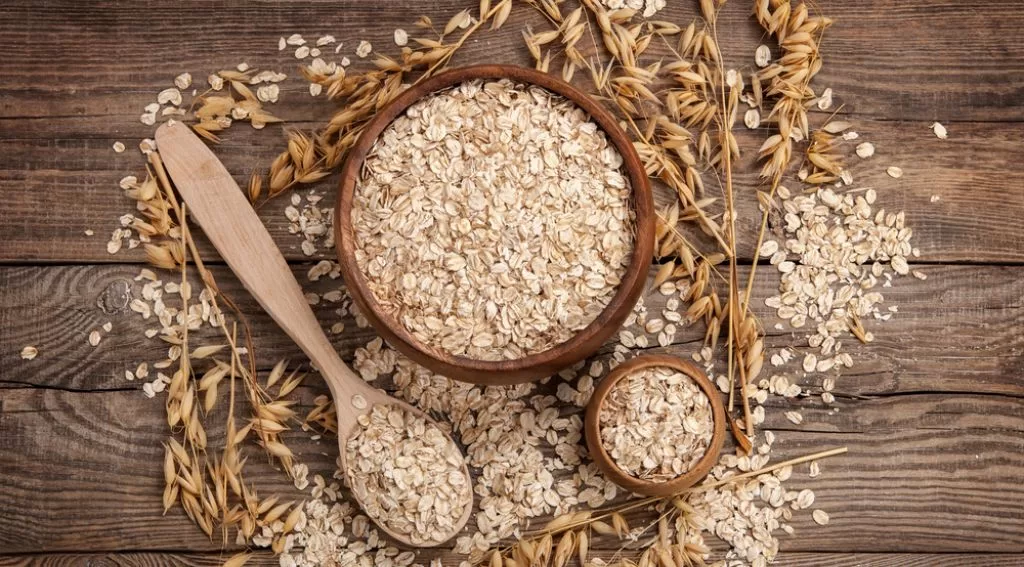
Whole Oats
Whole oats, which are also called oat groats, are the pureest form of oats. This is because they keep the whole grain, including the bran, germ, and endosperm, which makes them very healthy. On the other hand, they take longer to cook than other kinds of oats.
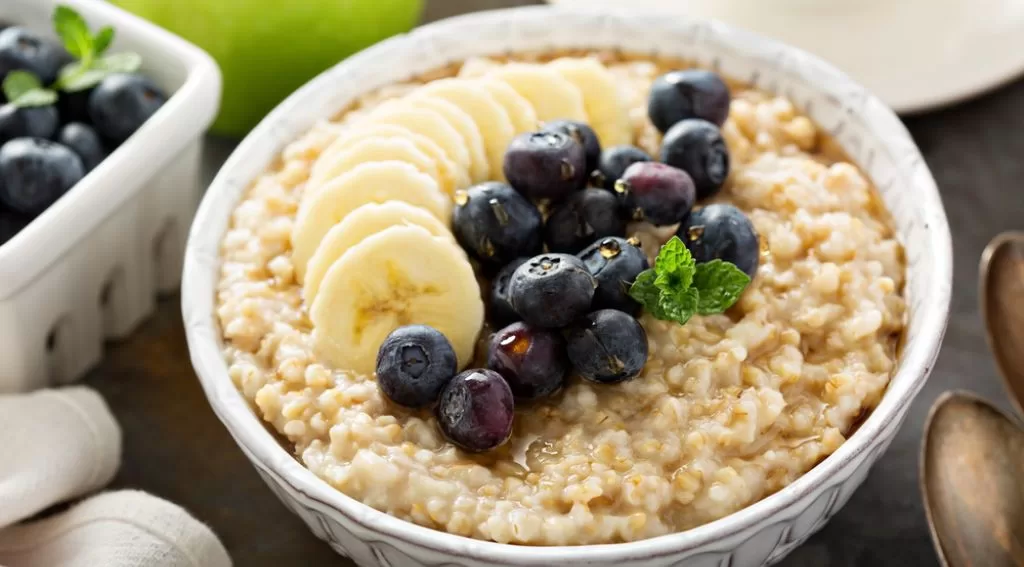
Steel-Cut Oats
Whole oats that have been cut into pieces with steel blades are called steel-cut oats. This process makes them rougher and gives them a nutty taste. It takes less time to cook them than whole oats, but they are still chewy and full of good things for you.

Rolled Oats
These are called rolled oats or old-fashioned oats. They are cooked and then rolled into flakes. This cuts down on the time they need to be cooked and makes them softer. A lot of people use rolled oats in their cereal, granola, and baking recipes.
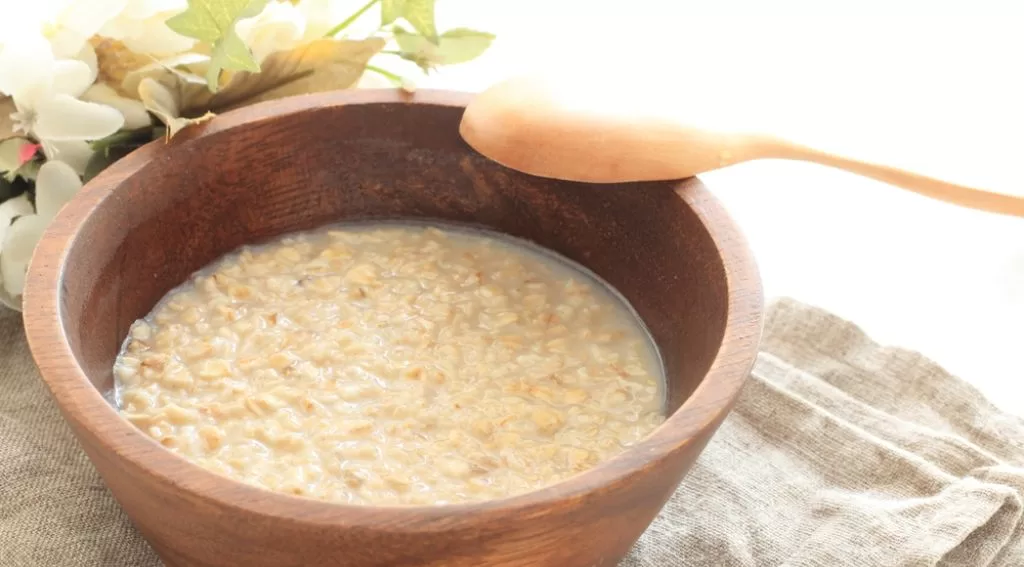
Instant Oats
Oats that are instant are already cooked, dried, and then cut into thin bits. Most of the time, all they need is hot water or a short microwave time to cook. It’s best to choose plain instant oats over those with extra sugars and flavours, even though they are easier to use.

Symptoms and Signs of Poor Breakfast Choices
Fatigue and Low Energy
Feeling tired and lacking energy is a common sign of not having a good breakfast. When you eat foods that are high in sugar or processed, your blood sugar can quickly rise and then drop, making you feel tired and slow.
Increased Hunger
Skipping breakfast or eating a meal that lacks protein and fiber can lead to increased hunger throughout the day. This often results in overeating or choosing unhealthy snacks, which can hinder weight loss efforts.
Weight Gain
Regularly making poor breakfast choices can contribute to weight gain. High-calorie, low-nutrient breakfasts can lead to an excess intake of calories and poor regulation of appetite, making it harder to achieve and maintain a healthy weight.
Causes and Risk Factors of Poor Breakfast Choices
High-Sugar Breakfasts
Many breakfast options, such as sugary cereals, pastries, and flavored yogurts, are loaded with sugar. Consuming these foods can lead to spikes and crashes in blood sugar levels, leaving you feeling hungry and unsatisfied.
Skipping Breakfast
Skipping breakfast is a common habit for many people, especially those with busy schedules. However, missing this crucial meal can lead to overeating later in the day and poor food choices, both of which can contribute to weight gain.
Inadequate Protein Intake
Protein is an essential nutrient that helps keep you full and satisfied. Many traditional breakfast foods lack sufficient protein, leading to increased hunger and a higher likelihood of overeating.
Diagnosis and Tests: Understanding Your Breakfast Needs
Metabolic Rate Tests
Understanding your metabolic rate can help determine your daily caloric needs. Tests such as a basal metabolic rate (BMR) test can provide insight into how many calories your body needs to maintain its current weight, which can help you make better breakfast choices.
Nutritional Deficiency Tests
Nutritional deficiency tests can identify any gaps in your diet. Knowing which nutrients you lack can guide you in selecting breakfast foods that provide those essential vitamins and minerals, ensuring a balanced and nutritious meal.
Personalized Diet Plans
Consulting with a nutritionist or dietitian can help create a personalized diet plan tailored to your specific needs and goals. This can include recommendations for breakfast foods that support weight loss and overall health.
Treatment Options: Healthy Breakfast Ideas
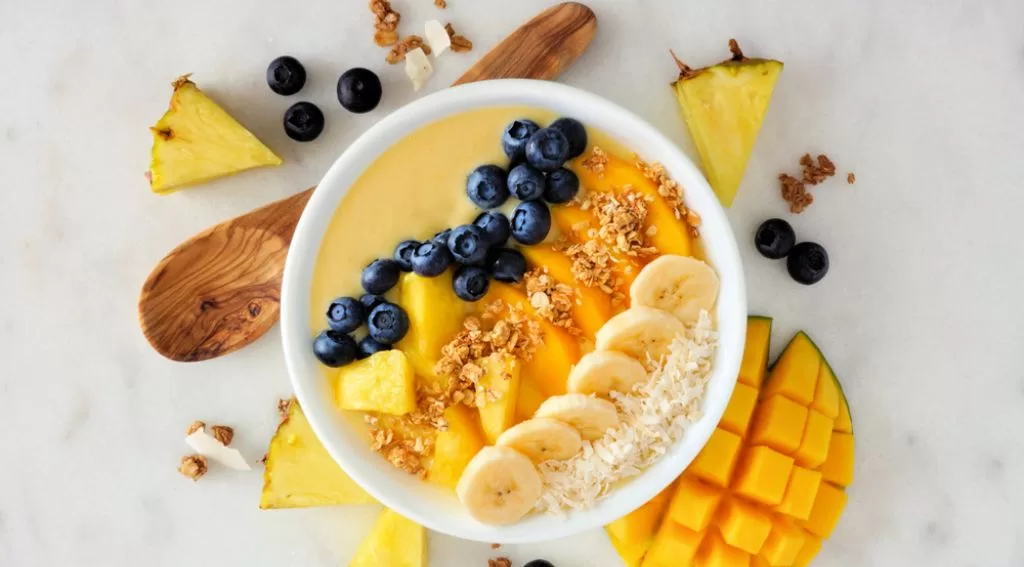
Oatmeal with Fresh Fruits
Oatmeal topped with fresh fruits is a classic and nutritious breakfast option. The combination of oats and fruits provides a balance of complex carbohydrates, fiber, and vitamins, making it a great way to start your day.
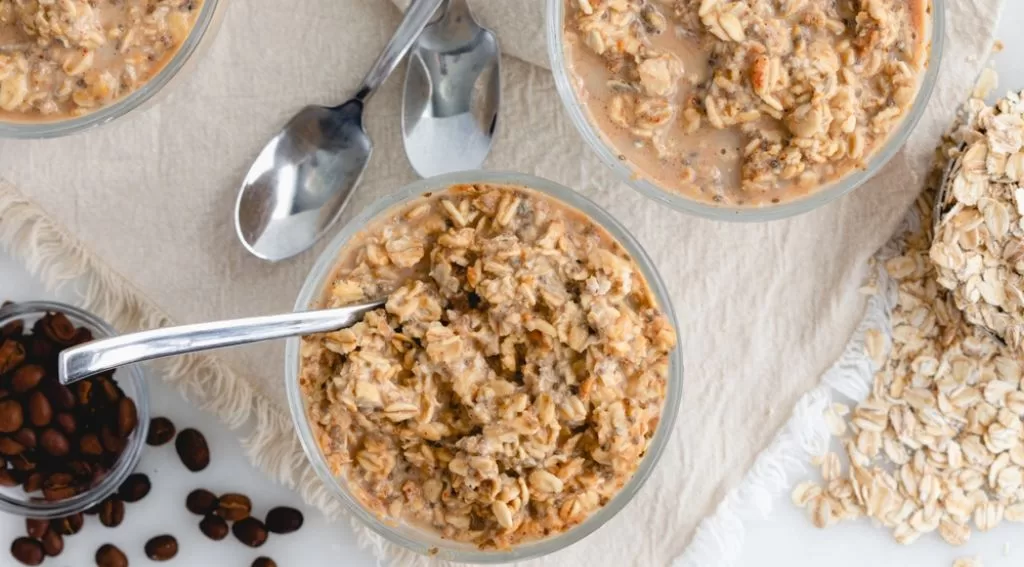
Overnight Oats
Overnight oats are a convenient and healthy breakfast option. Simply mix oats with your choice of milk or yogurt, add some fruits and nuts, and let it sit in the fridge overnight. This no-cook method is perfect for busy mornings.

Smoothie Bowls with Oats
Smoothie bowls are a fun and delicious way to incorporate oats into your breakfast. Blend your favorite fruits and vegetables with some oats and top with nuts, seeds, and more fruits for a nutrient-dense meal.
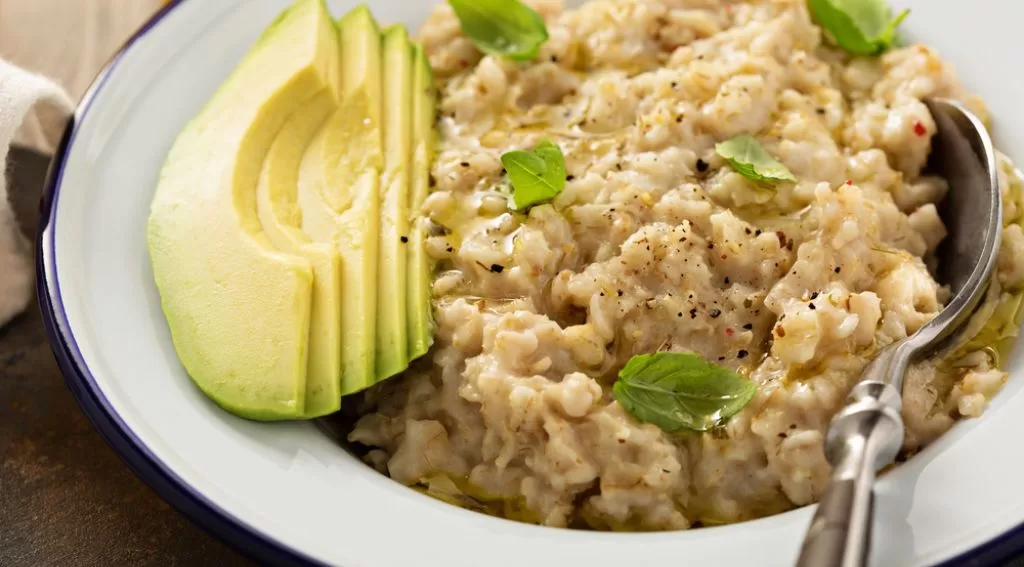
Savory Oatmeal
Savory oatmeal is a unique twist on traditional oatmeal. Cook oats with vegetable or chicken broth and add toppings like sautéed vegetables, avocado, and a poached egg. This savory version provides a good balance of protein and fiber.
Preventive Measures: How to Maintain a Healthy Breakfast Routine
Meal Planning
Planning your meals ahead of time can help ensure you make healthy breakfast choices. Prepare ingredients the night before or cook in batches to save time in the morning and avoid the temptation of unhealthy options.
Incorporating Variety
Eating a variety of foods ensures you get a wide range of nutrients. Rotate your breakfast options to include different types of oats, fruits, nuts, and seeds to keep your meals interesting and nutritious.
Staying Hydrated
Drinking enough water is essential for overall health and can help control hunger. Start your day with a glass of water and continue to drink throughout the day to stay hydrated and support your weight loss efforts.
Personal Stories or Case Studies
Real-Life Success Stories
Many individuals have found success in their weight loss journeys by incorporating oats into their breakfast routine. These real-life stories highlight the positive impact of starting the day with a nutritious meal.
Expert Opinions
Nutritionists and dietitians often recommend oats as a healthy breakfast option. Their expert opinions provide valuable insights into the benefits of oats and how they can support weight loss and overall health.
Dietitians’ Recommendations
Dietitians suggest incorporating oats into your breakfast routine due to their high nutritional value and versatility. They provide practical tips on how to prepare oats in various ways to keep your meals enjoyable and beneficial for weight loss.
Oats for weight loss : Related Recipes :-
- Oats Recipe Without Milk For Weight Loss
- Oats Upma Recipe For Weight Loss
- Rolled Oats Recipe For Weight Loss
- Oats Dosa Recipe For Weight Loss
- Oats Breakfast Recipes For Weight Loss Indian
- Oats Smoothie Recipe For Weight Loss
- Masala Oats For Weight Loss Recipe
- Overnight Oats Recipe For Weight Loss
- Oats Chilla Recipe For Weight Loss
- Oats Breakfast Recipes For Weight Loss
- Oats Recipes For Weight Loss
FAQ: Oats Breakfast Recipes for Weight Loss
Why are oats considered a good breakfast option for weight loss?
Oats are rich in fiber, particularly beta-glucan, which helps keep you full and satisfied longer. They also have a low glycemic index, which helps regulate blood sugar levels and prevent cravings. Additionally, oats are packed with essential nutrients, making them a nutritious choice for weight loss.
What are the different types of oats, and how do they differ?
- Whole Oats: The least processed, retaining all parts of the grain. They have a chewy texture and require the longest cooking time.
- Steel-Cut Oats: Whole oats chopped into pieces, offering a nutty flavor and chewy texture with a shorter cooking time than whole oats.
- Rolled Oats: Steamed and rolled into flakes, they cook faster and have a softer texture, making them ideal for oatmeal and baking.
- Instant Oats: Pre-cooked and rolled into thin flakes, they cook quickly but often contain added sugars and flavorings. Opt for plain instant oats for a healthier choice.
You can enjoy oats in various ways, such as traditional oatmeal with fresh fruits, overnight oats, smoothie bowls, or savory oatmeal. These recipes offer versatility and can be tailored to your taste preferences and dietary needs.
What are some benefits of eating oats for breakfast?
Oats are high in fiber, which aids in digestion and keeps you full longer. They also contain important vitamins and minerals like manganese, phosphorus, and magnesium. Regular consumption of oats can improve heart health, regulate blood sugar levels, and support weight loss.
Are instant oats as healthy as other types of oats?
While instant oats are convenient and quick to prepare, they often contain added sugars and flavorings. Plain instant oats can be a healthy option, but it’s best to avoid those with added sugars. Whole, steel-cut, and rolled oats are generally more nutritious choices.
Can oats help in reducing cholesterol levels?
Yes, oats contain beta-glucan, a type of soluble fiber that has been shown to reduce cholesterol levels. Regular consumption of oats can help lower LDL (bad) cholesterol and improve overall heart health.
What are some common mistakes people make with their breakfast choices?
Common mistakes include consuming high-sugar breakfasts, skipping breakfast altogether, and not including enough protein. These habits can lead to increased hunger, fatigue, and weight gain. Choosing a balanced breakfast with oats can help avoid these issues.
How do I make overnight oats?
To make overnight oats, mix rolled oats with your choice of milk or yogurt in a jar or container. Add fruits, nuts, seeds, or any other desired toppings. Refrigerate overnight, and enjoy a ready-to-eat breakfast in the morning.
Can I eat oats if I have gluten intolerance?
Oats are naturally gluten-free, but they are often processed in facilities that handle gluten-containing grains. Look for oats labeled as gluten-free to ensure they are safe for consumption if you have gluten intolerance or celiac disease.
What are some tips for maintaining a healthy breakfast routine?
- Meal Planning: Prepare ingredients the night before or cook in batches to save time.
- Incorporate Variety: Rotate different types of oats, fruits, nuts, and seeds to keep your meals interesting.
- Stay Hydrated: Start your day with a glass of water and continue to drink throughout the day to support overall health.

